Show
33 citations
related to Abstraction
Show
33 citations
related to Abstraction as a subject or category
Description Term used during the period 2002-present
Related Citations
Book
Stefan Helmreich
(2023)
A Book of Waves.
(/p/isis/citation/CBB270688747/)
Thesis
Zsofia Valyi-Nagy
(2023)
Vera Molnar's Programmed Abstraction: Computer Graphics and Geometric Abstract Art in Postwar Europe.
(/p/isis/citation/CBB411460064/)
Book
Alma Steingart
(2023)
Axiomatics: Mathematical Thought and High Modernism.
(/p/isis/citation/CBB378709006/)
Book
Janet Abbate; Stephanie Dick
(2022)
Abstractions and Embodiments: New Histories of Computing and Society.
(/p/isis/citation/CBB673315821/)
Book
Michael Friedman; Karin Krauthausen
(2022)
Model and Mathematics: From the 19th to the 21st Century.
(/p/isis/citation/CBB745240217/)
Article
Roberto Giacobazzi; Francesco Ranzato
(2022)
History of Abstract Interpretation.
IEEE Annals of the History of Computing
(pp. 33-43).
(/p/isis/citation/CBB005322259/)
Book
Martin Brückner; Sandy Isenstadt; Sarah Wasserman
(2021)
Modelwork: The Material Culture of Making and Knowing.
(/p/isis/citation/CBB582904662/)
Article
Claudia Cristalli; Ahti-Veikko Pietarinen
(2021)
Abstraction and Generalization in the Logic of Science: Cases from Nineteenth-Century Scientific Practice.
HOPOS
(pp. 93-121).
(/p/isis/citation/CBB855367059/)
Thesis
Sharrissa Iqbal
(2021)
Alternative Abstractions: Art and Science in Twentieth-Century Los Angeles.
(/p/isis/citation/CBB004997037/)
Article
M. Chirimuuta
(2020)
Cassirer and Goldstein on Abstraction and the Autonomy of Biology.
HOPOS
(pp. 471-503).
(/p/isis/citation/CBB004960700/)
Article
Carl F. Craver; David M. Kaplan
(2020)
Are More Details Better? On the Norms of Completeness for Mechanistic Explanations.
British Journal for the Philosophy of Science
(pp. 287-319).
(/p/isis/citation/CBB621951199/)
Chapter
Sarah N. Hijmans
(2020)
Chemical Elements and Chemical Substances: Rethinking Paneth’s Distinction.
In: What Is A Chemical Element? A Collection of Essays by Chemists, Philosophers, Historians, and Educators
(pp. 241-256).
(/p/isis/citation/CBB430448947/)
Chapter
Elena Ghibaudi; Alberto Regis; Ezio Roletto
(2020)
The Dual Conception of the Chemical Element: Epistemic Aspects and Implications for Chemical Education.
In: What Is A Chemical Element? A Collection of Essays by Chemists, Philosophers, Historians, and Educators
(pp. 257-280).
(/p/isis/citation/CBB012361300/)
Book
Oystein Linnebo
(2018)
Thin Objects: An Abstractionist Account.
(/p/isis/citation/CBB819236580/)
Book
Sam Cowling
(2017)
Abstract Entities.
(/p/isis/citation/CBB032581953/)
Book
Philip A. Ebert; Marcus Rossberg
(2017)
Abstractionism: Essays in Philosophy of Mathematics.
(/p/isis/citation/CBB220910667/)
Article
Anna Longo; Ben Woodward
(2017)
Infinitely Generative Structure: Fichte, Schelling, and Modern Geometry.
Azimuth
(pp. 45-58).
(/p/isis/citation/CBB205102574/)
Thesis
Theodora Vardouli
(2017)
Graphing Theory: New Mathematics, Design, and the Participatory Turn.
(/p/isis/citation/CBB982144600/)
Article
Susanna Lindberg
(2017)
Technics of Space, Place, and Displace.
Azimuth
(pp. 27-44).
(/p/isis/citation/CBB313146803/)
Article
Justin Humphreys
(2016)
Abstraction and Diagrammatic Reasoning in Aristotle’s Philosophy of Geometry.
Apeiron: Journal for Ancient Philosophy and Science
(pp. 197-224).
(/p/isis/citation/CBB601220663/)





Be the first to comment!